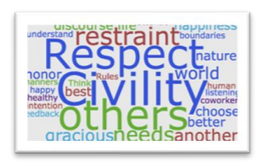
When we think about lying from a biblical perspective, it is easy to see that it is sinful.
The ninth of the Ten Commandments forbade lying (Deuteronomy 5:20). Jesus said that Satan was a liar and the father of all lying (John 8:44). Paul mentions lying as one of the things Christians must put away (Ephesians 4:25). All liars are included in the group that will be cast into hell (Revelation 21:8).
I wonder however, if we always understand what it means to lie. A dictionary will define a lie as “to make a statement that one knows is false” or “a false statement made with intent to deceive.” Lying not only has to do with what it said, it also has to do with why it is said. The purpose of a lie is to deceive.
What I am saying is not meant in any way to encourage lying or make ourselves feel better when we lie. Telling a lie is a serious matter. Persisting in lying can cause us to lose our souls.
This article is meant to encourage us to use the term correctly and to not condemn others for doing something that really cannot be classified as a lie. Instead of rashly saying, “That’s a lie,” or “He’s a liar,” let us remember to make sure we have and understand the facts, before we render our judgment.
There are chronic liars, but everyone who disagrees with us religiously, politically, or in any other matter is not necessarily a liar. I have always operated on the belief that everyone is as honest and sincere as I am in the views I hold. Holding a wrong view or giving inaccurate information does not warrant a hearty “That’s a lie!” That response drives wedges and does not encourage dialogue. It closes doors instead of opening them.
While we are to put away lying, we also are to put on things like tender mercies, kindness, humility, meekness, and longsuffering (Colossians 3:12).








 RSS Feed
RSS Feed